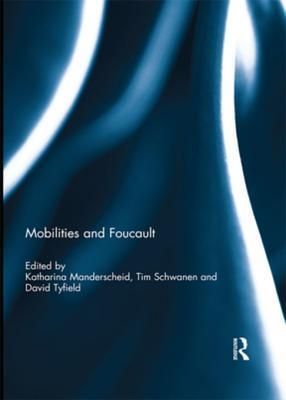
Mobilities and Foucault
Although Foucault’s work has been employed and embraced enthusiastically by some ‘mobilities’ scholars, discussion across these two traditions to date has mostly been partial and unsystematic. Yet Foucault’s work can make critical contributions, for example, to thinking about governing mobilities in contemporary societies, while conversely mobilities research opens up new perspectives on Foucault. In combination these bodies of work can illuminate issues as diverse as: the greater interdependencies between mobility systems (e.g. transport, tourism, trade, internet use); the proliferation of the undesired mobilities of viruses, of natural phenomena like fire, of (what is taken to be) criminality and other seemingly inevitable by-products of globalisation; the perceived threats to desirable forms of mobility as constituted by climate change, peak oil and energy security, and terrorism and warfare; and the increased popularity of logics of governance premised on choice, responsibilisation and the (re)coding of phenomena in economic terms under neo-liberalism. Against this background, this book brings together the first major collection of contributions from across the social sciences with a shared interest in both mobilities and Foucauldian thinking. This book was published as a special issue of Mobilities.